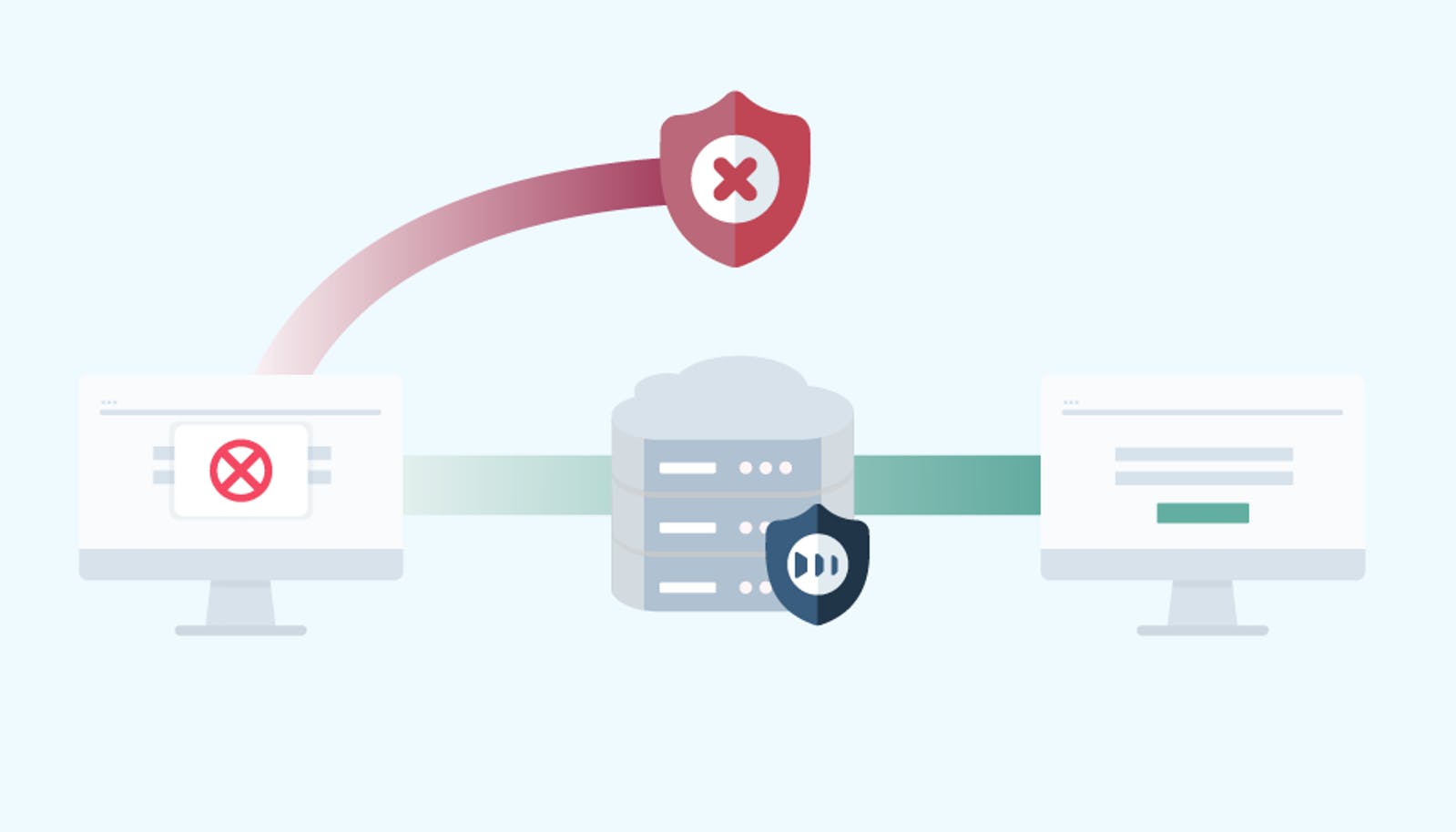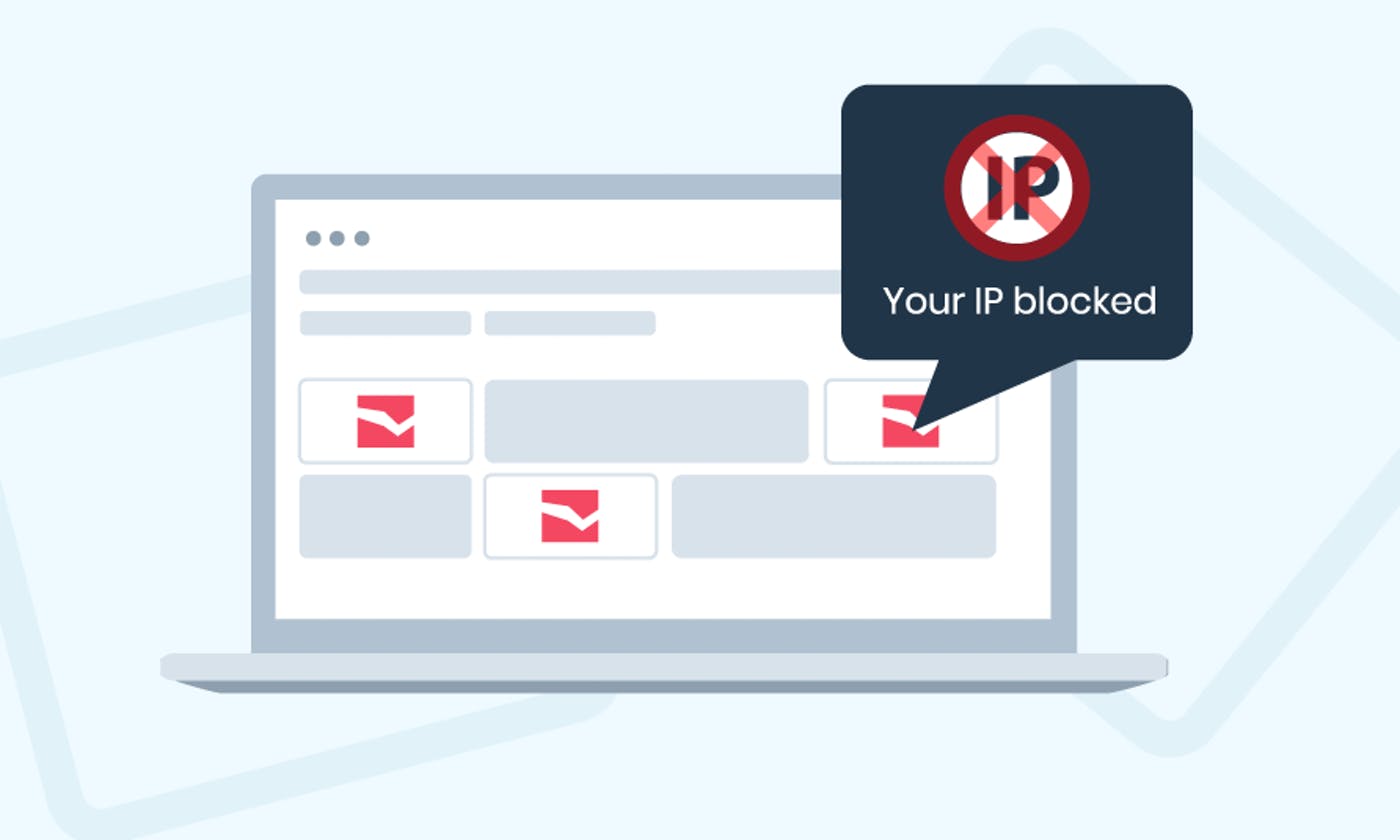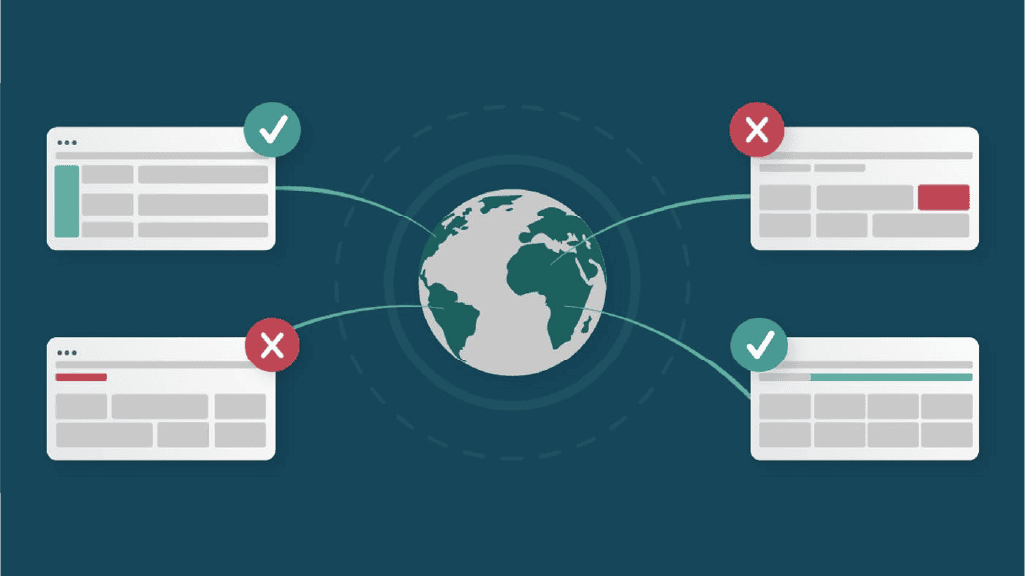What is IP Blocking? [VIDEO]
Over the course of your life on the internet, you must’ve encountered some websites or content that you just can’t get access to. Sounds familiar? Congrats, you’ve experienced IP blocking first hand! While it most often seems like an inconvenience on the user’s part, IP blocks play an important part on the internet that is definitely worth your attention.
Getting your IP blocked is either the result of something you did that the website does not approve of (e.g. bot usage), or an external factor that you have no control over (e.g. your location).
Let’s take a closer look at what IP blocking is, what’s purpose of it, and how you can get your IP unblocked with a proxy.
Why does the Internet Need IP Blocking?
IP blocking is an essential element for the internet to function properly. Think of it as an extra security layer that is most often used as a way of selecting whom to grant access to the website’s content.
The internet is not always fun and games, so blocking IPs comes in handy when controlling malicious actions.
Let’s go through a few examples of why some websites could be blocking IP addresses:
- Block bots and spam: most sites online have experienced botting in various forms. E-commerce websites are often overcrowded by bots that buy goods in bulks in order to resell them later at a bigger price (ticket scalping and sneaker bots being the best known example). In a similar lane, all kinds of websites often get undesired spam comments. These inconveniences lead to websites crashing as well as slowing their online services down for legit customers.
- Protection of data and confidential information: places such as academic institutions and different workplaces keep data that is only meant for the people studying or working there. Blocking external IPs minimizes the threat of leaking sensitive data as well as preventing any possible hackers from getting their hands on some classified information.
- Content localization (e.g. Youtube, Netflix content): when you’re accessing the internet from your own IP, you’re routed through to access the content you’re meant to access only. From YouTube to Amazon – every single big company has content targeted to suit customers’ needs coming from all different locales. So, following this mindset, there’s no need for a person from the US to see Dutch video content. Hence, an IP block.
- Fraudulent transactions: just as much as e-commerce sites have to deal with botting, there must be little to no online businesses that don’t get fraudulent transactions. With the aid of IP blocks such sites can refuse transactions from certain regions and countries if there’s a fraudulent tendency noticed.
- To control traffic surges: too many users at once could easily crash a website in no time. It’s a shame if the sudden surge happens due to bots, as real customers might be blocked from accessing the site in consequence.
- Social and political issues: Internet censorship is imposed on many different countries that limit free speech such as China, Russia, and Belarus among many others that are considered Enemies of the Internet due to the strict restrictions put on the limitations of sharing social and political issues.


How do I Unblock my IP?
However, even though IP blocking is an essential component of the infrastructure of the Internet, there might be a few cases where you’d want to go around this restriction. Maybe you’re in desperate need of some motivational Michael Scott quotes, but The Office isn’t available on Netflix in your country. All you need to do is get the US or a Brazilian IP (you’re very much welcome for the tidbit, by the way), and you’re all good to go to!
This is where proxies and VPNs come in. Both alter your IP address to look like your request to access a website is coming from a different location. A VPN would work better for a completely static connection (i.e. accessing localised video content), while residential proxies work wonders with bots, accessing e-commerce sites, and any other localised content across the web without any restrictions.
By the way, if you ever wondered how to check if your proxy is working properly, stop right here – we have already covered that.
About the author

Mariam Nakani
Say hello to Mariam! She is very tech savvy - and wants you to be too. She has a lot of intel on residential proxy providers, and uses this knowledge to help you have a clear view of what is really worth your attention.
All information on Smartproxy Blog is provided on an "as is" basis and for informational purposes only. We make no representation and disclaim all liability with respect to your use of any information contained on Smartproxy Blog or any third-party websites that may be linked therein.





